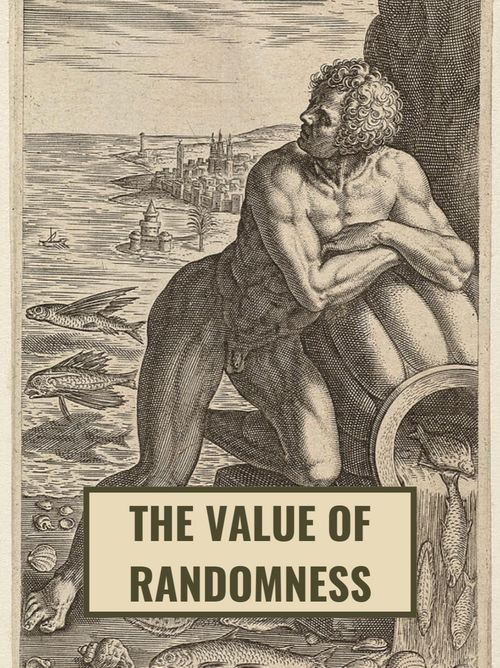Why you're the Greek God Proteus
Feb 12, 2022 · 2 mins read
0
Share

In The Mating Mind, Geoffrey Miller tackles three fascinating questions. One: Why do animals like rats, rabbits, and moths engage in random behavior? Two: What role does randomness play in human behavior? Three: What does randomness have to do with arts, humor, and sports? More👇
Save
Share
Rats, Moths. When scientists "jangle their keys," lab rats go into random and unusual "convulsions." When moths are chased by bats, they produce an "extraordinarily unpredictable range of evasive movements, including tumbling, looping, and power dives."
Save
Share
Rabbits. When escaping a fox, a rabbit doesn't take the "shortest escape route." Instead, it tends to "zigzag erratically." All three species here are using randomness as a shield against being hunted by predators. Creative, random movement makes their escape more likely.
Save
Share
Human examples. Some fighter planes are programmed to move slightly randomly when trying to evade a guided missile. Tennis players are told to "mix it up when they serve and return shots." Olympic athletes are tested randomly to ensure they can't dope.
Save
Share
Greek God Proteus. When his enemies tried to capture him, Proteus, a Greek God, escaped "by continually, unpredictably changing from one form into another— animal to plant to cloud to tree." He survived by becoming random. Such "Protean Behaviour" occurs everywhere in nature.
Save
Share
Play behavior as honing proteanism. When animals play, they are practicing to become unpredictable. Sports are all about predicting the opponent's next move, while keeping your own next move unpredictable.
Save
Share
Mind reading. In a 1984 paper, Richard Dawkins wrote that humans evolved two strategies to resist mind reading: hiding intentions (poker face) and creating a "false impression" (bluffing). But there's a third strategy: randomness. Can't guess what's next if it's random.
Save
Share
Advanced proteanism = human creativity. Creativity, like proteanism, depends on a "rapid, unpredictable generation of highly variable alternatives." Music, narrative, and art that is totally predictable is not considered creative - we demand creativity be protean.
Save
Share
Humor = proteanism? What does humor indicate? That your thoughts and stories are "fascinatingly unpredictable." Being unpredictable to your predators, enemies, and competitors is a big advantage - and humor is a testament to your protean abilities. Hence, humor is attractive.
Save
Share
Bottom line. Human abilities like humor, music, and art may look unique, but they're outgrowths of protean talents we share with other animals. Randomness - and its benefits - explain why we value apparently "useless" pursuits like sports, creative works, and a sense of humor.
Save
Share
0